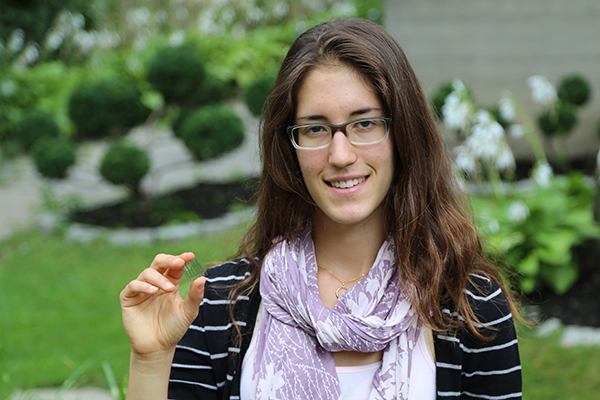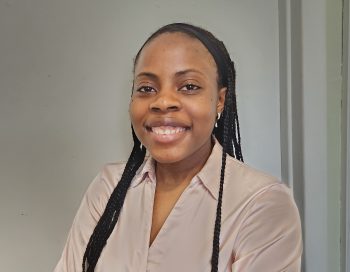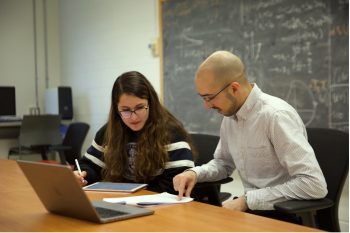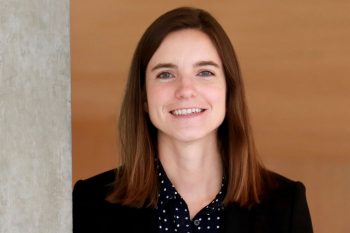Olga Misic (Year 2 ChemE) is just entering her second year at U of T Engineering, but she already has four months of graduate-level experience under her belt. Misic is one of eight undergraduate students awarded the inaugural First-Year Summer Research Fellowships, enabling them to pursue their passion for intellectual exploration in labs across the Faculty.
“We’d noticed that more first-year students were going out and finding research opportunities for the summer, and we were getting more inquiries from students about funding for these internships,” said Cori Hanson, Assistant Director, First Year Student Success and Transition in the Faculty’s First-Year Office. “We wanted to provide easier access to these opportunities.”
The Fellowships provide $5,000 in support to students who wish to gain research experience immediately after their first year of study. Students from all Core 8 programs, Engineering Science and Track 1 are eligible.
Misic was keen to apply the knowledge she’d gained in her first-year courses to the research environment, and sought out a position with Professor Tim Bender in the Department of Chemical Engineering & Applied Chemistry. Engineering Strategic Communications caught up with Misic to hear about the solar solutions she developed this summer.
What problem were you trying to solve with your summer research?
The Bender Lab works on developing new, as well as improving existing, organic photovoltaic devices. I was working on a project with an industry collaborator under the mentorship of Jeffrey Castrucci (ChemE 1T0, PhD 1T5), a post-doctoral researcher in the Bender Lab. The goal of the project was twofold: to reduce the industry partner’s variability in fabricating photovoltaic devices, and to assess the performance of our collaborator’s materials.
What did you accomplish?
After modifying the standard operation procedures, we were able to get consistent baseline performances. The next step was to create devices using the collaborator’s material and to test their performance. I was in charge of two out of the four device fabrication steps and was the primary tester. After gathering sufficient data, we sent out a report to the collaborator to show them our findings. I also did a lot of side jobs, including helping other lab members synthesize and purify organic compounds, since a critical machine broke down and the lab was not able to make devices for a month.
Did the First-Year Summer Research Fellowship make a difference to you?
I would not have been able to get this research experience had it not been for the Fellowship. Since I did not qualify for NSERC funding, I would have had to find external funding through other grants.
What advice did you gain from your experience?
The most useful piece of advice my mentor, Jeffrey, gave me was that the quality of the documentation of data is just as important as the data itself. This made me mindful of my documentation techniques and it proved to be very helpful since I was working with large amounts of data.
Do you think this research experience will help you in second-year engineering?
The field of organic photovoltatics requires the understanding of many topics —quantum physics, statistics, organic chemistry, and others. Prior to starting the position, I had a very limited understanding of many of these fields, and as a result, I experienced a very steep learning curve at the beginning. With the help of the other members of the lab, I was able to acquire an adequate understanding in a relatively short period of time. This experience helped me learn how to ask questions effectively — a skill that will be very helpful for second year.



